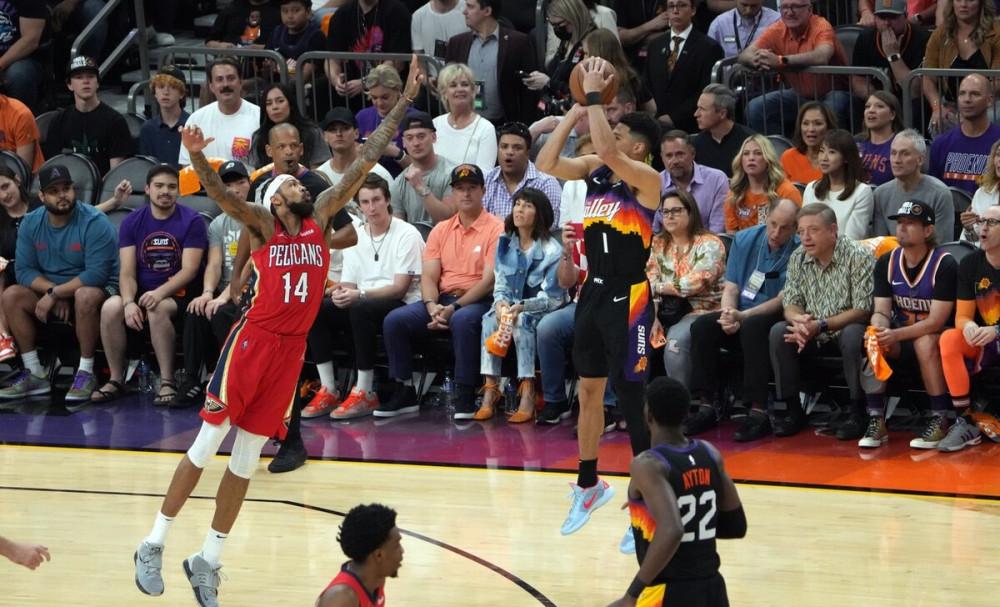With Chris Paul on 14-of-14 shooting in G6 with 33 points, five rebounds and eight assists, the Suns beat the Pelicans 115-109 and eliminated the Pelicans 4-1 and met the Lone Rangers in the Western Conference Semifinals, without the "Black Nine" that some people expected. However, the Suns are still problematic, and in this series, the Suns are ranked last in the league with multiple stats, which will be a huge obstacle to their return to the Finals.

In this series, the Suns exposed a very serious three-pointer problem. The Pelicans won 28 fewer regular-season games than the Suns, giving their opponents the fifth-highest three-point shooting rate of 36.5 percent in the league; but in this series, the Suns only hit 8.7 three-pointers per game with a three-point shooting rate of 31.9 percent, and the Suns have the fourth-lowest three-point shooting rate among 16 playoff teams, and the second-lowest three-point shooting per game. In this era when three-pointers are an important offensive tool, the Suns' sluggish three-point performance will be a big problem.
Not only are the Suns bad at three-pointers, but their ability to make free throws is also poor. The Suns averaged 19.9 free throws per game in the regular season, the fourth fewest of the league's 30 teams, and the Suns averaged the second fewest free throws per game from 16 playoff teams in the first round of the playoffs against the Pelicans. In the playoffs, which are more confrontational, it is more difficult to score, and free throws are an important means of scoring, and the problem that the Suns' ability to make free throws is also a hidden danger.
In addition to three-pointers and free throws, the Suns did a poor job of rebounding protection in the first round of the playoffs. In the first round of the playoff series with the Pelicans, the Suns averaged 35.7 rebounds per game, the second fewest of the 16 playoff teams, just slightly higher than the only team to be swept out in the first round of the playoffs this season, and the Suns allowed the Pelicans to grab a staggering 15.0 frontcourt rebounds per game, leading the 16 playoff teams, and the Pelicans averaged second in the 16 teams in total rebounds per game. In basketball, one more rebound means one more offensive opportunity, but that's the Suns' weak link.
Behind the loss of rebounding control, it is the Suns' secondary offense that also has poor scoring. In the first round of the playoffs, the Suns averaged just 9.8 points per game through a second offense, the third fewest of the league's 16 playoff teams, only slightly better than the Lone Rangers and Bulls, while the Suns averaged 17.0 points per game for the Pelicans, the most of the 16 playoff teams in the league.
The weakness in rebounding and secondary offense reflects the weakness of the Suns' inside line, and the failure to do three-pointers is the result of the Suns' lack of strength in the outside line, and these problems are difficult to improve in the short term. The sun is full of problems, and it is already a bump to enter the second round, and it is not easy to return to the finals, let alone win the championship.